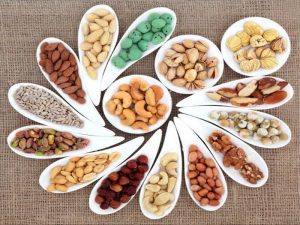Uncategorized
The Role of Probiotics in Gut Health and Digestion
The Role of Probiotics in Gut Health and Digestion
Gut health is a cornerstone of overall well-being, influencing everything from digestion to immunity and even mental health. At the center of this crucial system are probiotics—live microorganisms that provide a host of health benefits when consumed in adequate amounts. In this article, we’ll explore the role of probiotics in promoting gut health and aiding digestion, helping you understand why they are an essential part of a healthy lifestyle.
What Are Probiotics?
Probiotics are often referred to as “good bacteria.” These beneficial microorganisms naturally inhabit your gut, working alongside other bacteria, fungi, and viruses to form a balanced gut microbiome. They are found in:
- Fermented foods like yogurt, kimchi, sauerkraut, and kefir.
- Probiotic supplements, which deliver concentrated doses of specific strains.
The primary goal of probiotics is to maintain a balanced gut microbiome, which is critical for numerous bodily functions.

How Probiotics Impact Gut Health
1. Restoring Gut Microbial Balance
Factors such as poor diet, stress, antibiotics, and illness can disrupt the gut microbiome, leading to a state known as dysbiosis. Probiotics help restore balance by repopulating the gut with beneficial bacteria, reducing harmful bacteria levels, and promoting a healthy microbial environment.
2. Enhancing Digestive Function
Probiotics play a vital role in the digestion and absorption of nutrients. Specific strains can:
- Break down lactose: Probiotic strains like Lactobacillus acidophilus aid in digesting lactose, which is beneficial for those with lactose intolerance.
- Assist in fiber digestion: Probiotics break down complex fibers into short-chain fatty acids, which nourish gut cells and support colon health.
3. Strengthening the Gut Barrier
A strong gut barrier prevents harmful substances, such as toxins and pathogens, from entering the bloodstream. Probiotics enhance the integrity of the intestinal lining, reducing the risk of leaky gut syndrome and associated inflammatory conditions.
Probiotics and Immune System Support
The gut houses about 70% of the body’s immune cells. Probiotics stimulate the production of antimicrobial peptides, regulate immune responses, and inhibit the growth of harmful pathogens. Regular consumption of probiotics has been linked to a reduced incidence of colds, flu, and infections.
Probiotics and Mental Health
The gut-brain axis—a bidirectional communication network between the gut and the brain—relies heavily on a healthy microbiome. Probiotics, particularly strains like Lactobacillus and Bifidobacterium, influence neurotransmitter production (e.g., serotonin) and reduce inflammation, which can positively impact mood, anxiety, and stress levels.
Probiotic Benefits for Specific Digestive Issues
1. Irritable Bowel Syndrome (IBS)
Probiotics can alleviate IBS symptoms like bloating, diarrhea, and abdominal pain. Strains such as Bifidobacterium infantis and Lactobacillus plantarum are particularly effective.
2. Diarrhea
Probiotics are well-known for preventing and treating diarrhea, especially antibiotic-associated diarrhea. Strains like Saccharomyces boulardii and Lactobacillus rhamnosus GG are commonly recommended.
3. Constipation
Certain probiotics, such as Bifidobacterium lactis, promote regular bowel movements by improving stool consistency and increasing gut motility.
Sources of Probiotics
1. Fermented Foods
- Yogurt: A rich source of live cultures like Lactobacillus bulgaricus and Streptococcus thermophilus.
- Kefir: A fermented milk drink packed with diverse probiotic strains.
- Kimchi and Sauerkraut: Fermented vegetables rich in Lactobacillus strains.
- Tempeh and Miso: Fermented soy products containing beneficial bacteria.
2. Probiotic Supplements
Supplements are an effective way to target specific health needs, as they provide high concentrations of select strains. Look for products with:
- Clearly labeled strains and CFU counts (colony-forming units).
- Enteric coating for protection against stomach acid.
Choosing the Right Probiotic for You
1. Identify Your Needs
- For general gut health: Look for multi-strain supplements with Lactobacillus and Bifidobacterium.
- For specific conditions: Research strains proven to address your issue, such as Lactobacillus rhamnosus for diarrhea or Bifidobacterium lactis for constipation.
2. Consider Quality and Viability
- Opt for brands that guarantee live cultures through the product’s shelf life.
- Ensure proper storage, as some probiotics require refrigeration.
How to Incorporate Probiotics into Your Routine
1. Start Slow
Introduce probiotics gradually to allow your body to adjust. Some people may experience mild bloating initially, which usually subsides.
2. Pair with Prebiotics
Prebiotics, found in foods like garlic, onions, and bananas, act as food for probiotics, enhancing their effectiveness.
3. Maintain a Balanced Diet
Probiotics work best in conjunction with a healthy diet rich in fiber, lean proteins, and healthy fats.

Potential Side Effects and Precautions
While probiotics are generally safe, some individuals may experience:
- Temporary bloating or gas during initial use.
- Interactions with immune-suppressing medications.
Consult a healthcare provider before starting probiotics, especially if you have underlying health conditions.
Conclusion
Probiotics play a pivotal role in supporting gut health and digestion by restoring microbial balance, enhancing nutrient absorption, and protecting the gut barrier. Whether through fermented foods or supplements, incorporating probiotics into your daily routine can lead to improved digestive health, a stronger immune system, and even better mental well-being.
Start your journey to optimal gut health with carefully chosen probiotics and enjoy the long-term benefits of a balanced microbiome. Explore high-quality probiotic options today at Primebestpremierms.com!


